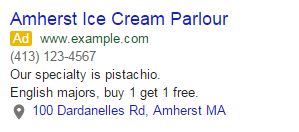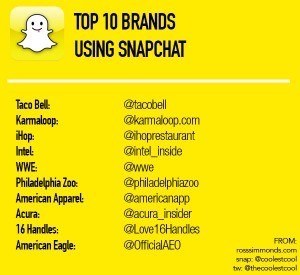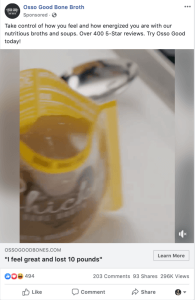How does a company renowned for ratings based on individual inspections scale up to meet the needs of its passionate customers?
The hotel and restaurant guides published by French tire company Michelin have high standards for inclusion. The company’s inspectors visit each restaurant and hotel multiple times to determine if they consistently deliver high quality experiences. They have been doing this for 123 years. The result: A large, devoted customer base that expects the same consistent high quality from the guides.
How, then, do you merge the knowledge and expertise embedded in the guides with the mass personalization and accessibility demands of the digital era? That is the challenge for Michael Davis, chief product officer of Michelin Experiences which handles events, marketing, communications and sales for the guide.
“My role within the Michelin Guide is to transform the Michelin Guide from a directory of reference material into a daily digital utility that encompasses all aspects of curation,” said Davis. “So we end up creating more of a lifestyle digital product based on that curation and brand.”
Doing that means being able to recommend places and activities near a hotel or restaurant listed in the Michelin Guide. Many travel sites rely on user ratings to create lists of these suggestions. Crowdsourcing this way produces lists of things that are of interest to most people. That doesn’t align with Michelin’s brand values of quality and discernment.
For Michelin, it is necessary to deliver suggestions that are related to each person’s interests. “The golden goose in travel is how can we give you access to discovery and access to scale but also make it personalized for your particular needs,” Davis said.
Cultural AI
To do that, they turned to Qloo, which uses AI to predict taste for any target audience and map relationships within and between cultural domains. Those domains include music, film, TV, dining, nightlife, fashion, books, travel and tech. Its AI has mapped more than a quarter-trillion cultural correlations.
“You can take a kernel of taste, one little entity, it could be a comedian, a music artist, a film, and Qloo will respond back with predictions about taste in that category or other categories within milliseconds,” said Qloo CEO Alex Elias. “You could type in Sonny Rollins, the jazz musician and see recommendations. There’s over 11,000 people in our database who’ve explicitly declared they like Sonny Rollins and gave their opinions on many, many other topics. So, if you like Sonny Rollins there’s a very high likelihood you will like these other things, too.”
Davis and Michelin use Qloo to determine suggestions for registered members of the Michelin Community even if the only thing they know is where the user is staying.
“In New York, we might have two hotels on the same block, but they’re very different in their style,” said Davis. “If you went to Google, for example, you would get the same sort of recommended things to do because they are both located within a couple of hundred feet of one another. With Qloo it allows us to take into account the customer profile or the hotel’s profile, its style, its atmosphere, its design, and create a guide that’s more tuned for that type of guest than the one that’s staying down the block. So you might get museums recommended, but one might be the Museum of Sex in New York versus the Whitney.”
Crowdsourcing is coming
To be clear, Davis has nothing against crowdsourcing. Michelin started the guide to give people a reason to drive and use their tires. In the beginning, they relied on their customers’ suggestions of what was available and its quality.
“That is something that we’re looking to explore again in the future, which is to leverage this vast community that we have globally, who have constantly voiced their desire to be part of the product,” he said. “We are looking to use Qloo to help us create a balance between our community and the inspectors, and involve people — more of our loyal customer base, or our people who appreciate what we’re doing and value the curation, but also recognize they have value to bring to the process.”
While Qloo can be used out of the box, Michelin had very specific needs. Davis said getting the customization they needed meant educating the Qloo engineering team on “why these granular pieces of data make such a difference for us, and the team’s been great in adapting to that, and what our needs are. I mean, we’re demanding.”
One example is when a user creates a list of restaurants. Because the guide refreshes their own list constantly, the user’s personalized list has to be up-to-date with what is and isn’t guide-approved. This can be tricky when, for example, a recommended hotel is home to a recommended restaurant that is owned and operated separately.
“The hotel may still be there, but the restaurant in it is no longer in the guide,” said Davis. “So we get into these really sticky situations in order for it to be accurate and Qloo helps us manage that and keep the real-time updates categorized.”
The when, what and how much of implementing
- When did you start to implement Qloo and how long did it take? Initially signed with them in 2021; developer onboarding to Qloo is very intuitive and typically takes a day to hook into the APIs. For custom solutions/pipelines and bespoke tuned AI models, it’s usually no more than a few weeks.
- Did the implementation happen in-house or did you use implementation partners? Implementation happened entirely in-house; leveraging Qloo’s documentation and AI developer tools and some support.
- How many people are on the team running the solution? Just a handful of engineers to integrate, with a dedicated engineer on point to architect the pipeline from Qloo’s AI into their product.
- Ball-park cost (is it enterprise only)? Most enterprise integrations start in the 6-figures annually, but Qloo is very supportive of high-volume trials and individual developer access/plans. Also, Qloo has developed a non-technical self-serve interface to the AI aimed at marketers and is much more cost-effective per seat than high-volume API licensing of the AI.
(Answers provided by Qloo CEO Alex Elias.)
The post Michelin meets the digital era: Personalized recommendations powered by AI appeared first on MarTech.
MarTech(6)






